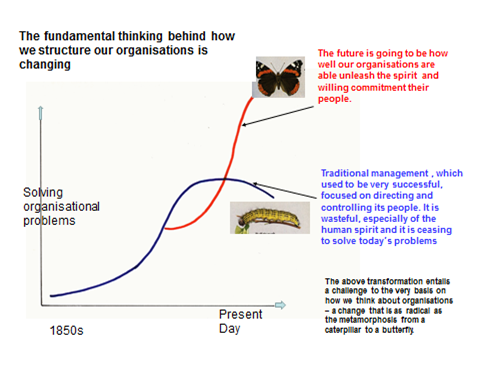Traditional vs “New” Management Thinking
Traditional vs “New” Management Thinking
[From the Archive: Originally posted at Amplify.com Jan 15, 2011]
This post from the Deming Learning Network has many similarities with what I call the Analytic vs Synergistic thinking transition. See also the table, comparing the two mindsets.
Amplify’d from www.dln.org.uk [Note 23-Jan-2021: Original page long gone. Wayback Machine version is available here.]

Based on underlying perceptions we develop a management culture, with its methods, to address the challenges within our organisations. Our traditional culture was designed to maximise the return from capital and to control Labour. It was very successful. But the situation has changed or evolved. The challenge of the future is to recognise and then utilise the knowledge, creativity and spirit of staff. The traditional culture, as represented by the blue line, was not designed for this task. To maximise the potential of people requires new thinking; and from this new thinking will evolve new methods (red line).
A comparison between the management language of our traditional management culture with what is evolving with the new concepts:
| Traditional Language | Language of the Future |
|---|---|
|
|
Read more at http://www.dln.org.uk [Note 23-Jan-2021: Original page long gone. Wayback Machine version is available here.]
– Bob
